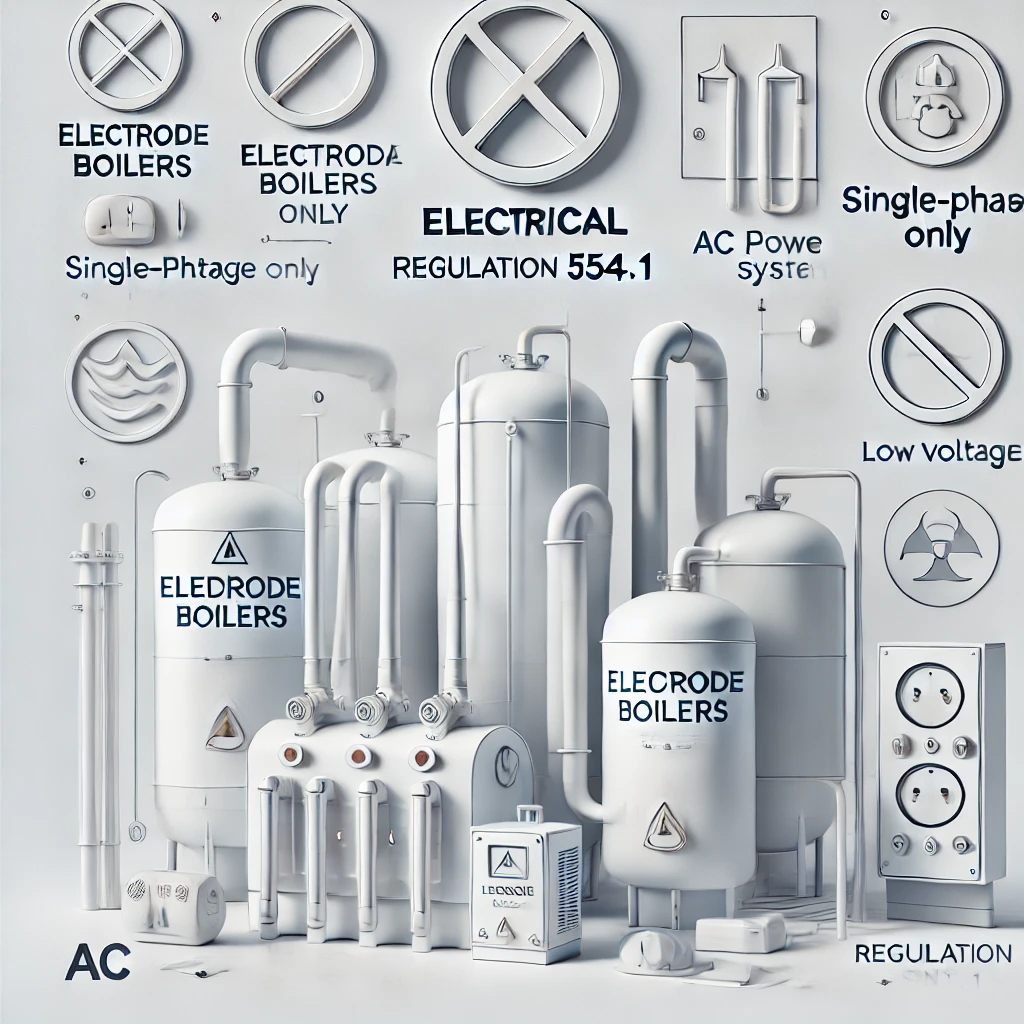Understanding the Electrical Supply Requirements for Electrode Boilers
Every electrode boiler shall be connected to an AC system only - Regulation 554.1.1.

OW London Electrician and Home Automation Engineers Team
Understanding the Electrical Supply Requirements for Electrode Boilers

Regulation 554.1.1 - Electrode Boilers and AC Systems
Importance of Correct Electrical Supply
According to Regulation 554.1.1, every electrode boiler shall be connected to an AC system only. An electrode boiler uses electricity to generate steam or hot water, and it requires a high voltage AC supply, typically around 415 volts, to operate efficiently.
Why AC Systems are Necessary
This regulation highlights that electrode boilers cannot be connected to a low voltage supply, a three-phase supply, or a single-phase supply. The high voltage AC supply is essential to ensure the proper functioning of the boiler and to prevent potential safety hazards.
Compliance and Safety
It is crucial that the installation and connection of an electrode boiler are carried out by a qualified electrician. Adherence to the regulations and the manufacturer's instructions is necessary to ensure safety and compliance with the law. Any deviation could result in safety hazards or non-compliance issues.
Frequently Asked Questions
Q: What is the required electrical supply for an electrode boiler?
A: Every electrode boiler must be connected to an AC system only, as stated in Regulation 554.1.1.
Q: Can an electrode boiler be connected to a single-phase or three-phase supply?
A: No, electrode boilers cannot be connected to a single-phase, three-phase, or low voltage supply. They require a high voltage AC supply to operate efficiently.
Q: Why is it important to follow Regulation 554.1.1?
A: Following Regulation 554.1.1 is important to ensure the safe and efficient operation of electrode boilers. It helps prevent safety hazards and ensures compliance with legal requirements.
Q: Who should install and connect an electrode boiler?
A: The installation and connection of an electrode boiler should be carried out by a qualified electrician to ensure adherence to regulations and safety standards.
- Regulation Compliance: Ensuring that electrode boilers are connected to the correct electrical supply as per Regulation 554.1.1.
- Safety: Preventing safety hazards by avoiding incorrect electrical connections.
- Efficiency: Ensuring the boiler operates efficiently with a high voltage AC supply.
- Qualified Installation: Emphasizing the need for qualified electricians to install and connect electrode boilers.
- Legal Adherence: Complying with legal requirements to avoid non-compliance issues.
Conclusion
Adhering to Regulation 554.1.1 is essential for the safe and efficient operation of electrode boilers. Ensuring that they are connected to an AC system only, and having a qualified electrician perform the installation, are key steps in maintaining compliance and safety.
What users Saying
Discover what our customers think about our services. Their feedback reflects our commitment to delivering exceptional service and expert solutions for all electrical and security needs.

